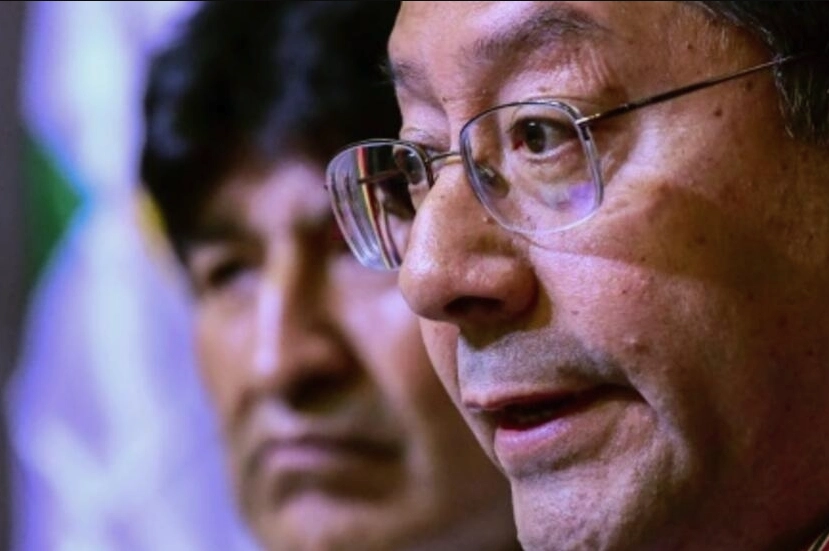Last March 12, three former presidents and a vice president tried the impossible: to reconcile Evo Morales with Luis Arce. Although we do not know for sure, it is probable that Evo and Lucho sat at the same table and shared a tasty meal worthy of the 5-star hotel that was the setting for the meeting of the Puebla Group (an organization that brings together notable figures of the Latin American and world left) but refused to initiate at least a brief conversation.
A curious fact is that the former presidents who took the initiative have a political past that does not qualify them either as reconciliation-minded or as respectful of the law and the Constitution. In the first place, there was the former Argentinean President Alberto Fernandez, who left a country not only in ruins, as a result of corruption and mismanagement, but absolutely divided, to the point that he facilitated the arrival to power of a polarizing figure like Javier Milei. There was also former Colombian President Ernesto Samper, who supported Morales’ indefinite stay in power because he said it was a “good” reelection. Finally, there was the former Spanish president José Luis Rodríguez Zapatero, who militantly supported the efforts of several Latin American presidents to remain in power in forums and interviews.
It is worth mentioning that also present was the Venezuelan Delcy Rodriguez, vice president of Nicolas Maduro, who instead of negotiating or speaking with his opponents prefers to imprison them in order to facilitate a new presidential term.
This urgent attempt of rapprochement between Evo and Lucho occurs because all the red lights of international progressivism have been turned on as a result of the fact that the right-wing parties have already carried away various left-wing parties, such as Correism in Ecuador and Peronism in Argentina, and there is no indication that this bleeding is going to stop.
In Chile, the leftist Gabriel Boric has such a poor performance (35% popularity) that a future right-wing government is foreseen. In Ecuador, its current president Daniel Noboa (businessman and neoliberal) has around 80% of popularity due to his anti-crime measures. In Brazil, even though Bolsonaro has been disqualified from running for election for eight years, his popular wife, Michelle de Paula Firmo, whose conservatism makes the former president of Brazil look like a biblical lamb by her side, has taken the reins of his party.
But this is not all. Today, to a greater or lesser extent, the risk of an increase in citizen insecurity due to the penetration of drug trafficking is looming over all Latin American countries. This places the “Bukele solution” as the best not only to stop violence in the streets but also to get votes from right-wing parties that take the Salvadoran president as an example to follow.
The members of the Puebla Group (GP) think that this wave of right-wing governments could reach Bolivia, removing the MAS from power and placing a right-wing politician in the presidency, which would undoubtedly reconfigure, even more, the political landscape of Latin America and put in question the geopolitical balances.
In the case of Bolivia, these concerns are futile. On the one hand, the opposition is fragmented: in the legislative branch, Creemos and Comunidad Ciudadana suffer from internal problems, are divided, and without a clear direction. And, on the other hand, the department of Santa Cruz, which has always been a bastion against MAS, today has no clear direction or leader to continue with this tradition.
In any case, the members of the GP are mistaken if they believe that the crisis of progressivism is a mere matter of unity and that bringing the fractious ones into concord will be enough. They do not realize, or do not want to realize, that the crisis has two burdens that are leading it to the abyss: its obsession for perpetuation in power (precisely what Zapatero and Samper applaud with rage), and state corruption and inefficiency.
The Puebla Group was born to make the left endure in our continent. It claims to defend democracy and its values, but it backs authoritarian leaders and looks the other way when democratic norms are violated. What our country needs is not for Evo Morales and Luis Arce to reconcile. It would be more praiseworthy and productive for the leaders of the GP to make them understand that democracy cannot be built on the ruins of institutions, the Constitution and civil rights.
*Translated by Janaína Ruviaro da Silva from the original in Spanish.











